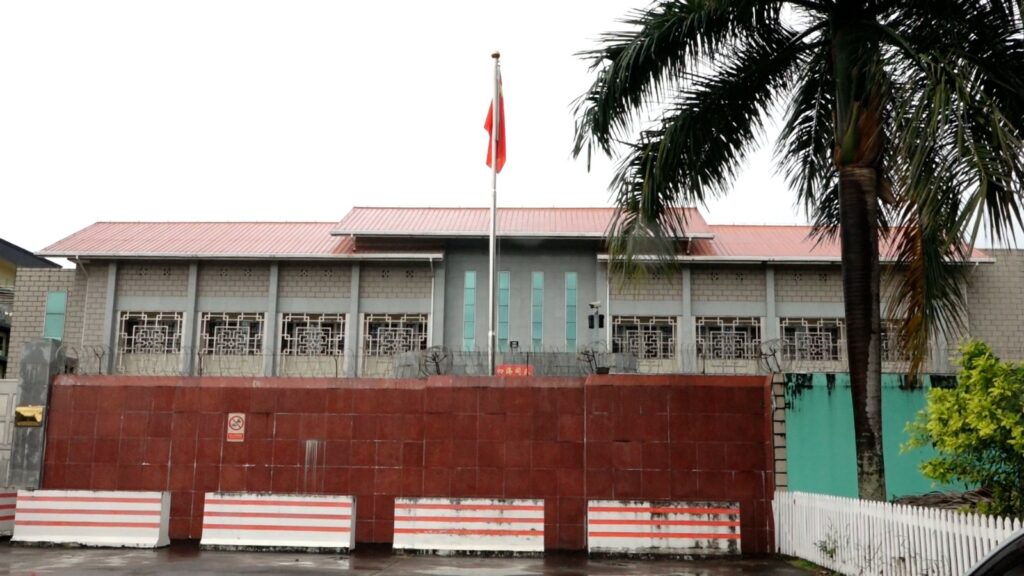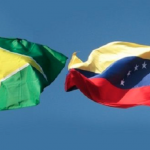
By Svetlana Marshall
Two months after a Venezuelan navy vessel invaded Guyana’s waters, China has floated the idea of the age-old border controversy between Guyana and Venezuela being resolved through “friendly consultations” and “negotiations”.
The Guyana Government has already stated that it will have no further talks with Venezuela on the controversy, as the country has repeatedly violated the interim order of the International Court and the 2023 Argyle Agreement between the Presidents of the two countries.
Historically, China has had an impartial stance, offering little comment on the controversy, which birthed out of Venezuela’s claims to more than two-thirds of Guyana’s territory on the basis that the 1899 Arbitral Award is null and void – a claim Guyana has rejected as false.
Guyana has since moved to the International Court of Justice (ICJ), asking the World Court to confirm the validity of the Arbitral Award in 1899.
At a press conference today at the Embassy of the People’s Republic of China here in Georgetown, China’s Deputy Chief of Mission, Huang Rui, when asked about the recent incursion by the Venezuelan Coast Guard and the border controversy, said the controversy should be resolved through friendly “consultations” and “negotiations.”
“So, the position on that issue, the border issue, is very clear. And, we hope and we think Guyana and also the Venezuela Government can find a, they can solve the issue through negotiations. They can solve the border issue through friendly consultations and negotiations,” China’s Deputy Chief of Mission said.
In recent times, Venezuela has issued decrees and laws purporting to annex and incorporate Guyana’s Essequibo. Those moves have been fully rejected by Guyana.
In January, Venezuela’s President, Nicolas Maduro announced that Venezuela will conduct elections in Guyana’s Essequibo Region.
The Chinese Deputy Chief of Mission said China remains committed to respecting the sovereignty and territorial integrity of all nations, and as such, has steered clear of intervening in any country’s internal affairs.

“If you, actually follow up on Chinese foreign policies, all those policies, as long as possible you will see, first of all, we never intervene in the internal affairs of any nation, and the second principle is we actually respect all nations sovereignty and territorial integrity,” the Deputy Chief of Mission said.
CNOOC, a state-owned oil company in China, holds a 25% working interest in the Stabroek Block located offshore Guyana. It was within that very block that the incursion by Venezuela took place.
Unlike China, other world superpowers including the United States and France have not only condemned the March 1 incursion, but have also supported Guyana’s move to have the controversy resolved at the ICJ, and preserve its sovereignty and territorial integrity.
Last month during a visit to Guyana, US Secretary of State, Marco Rubio issued a strong warning to Venezuela, telling the Spanish speaking country that were it to ever attack Guyana or the assets of US oil giant ExxonMobil, there will be serious consequences.
Exxon is the lead operator in the Stabroek Block with a 45% interest, while Hess, the third operator in the block, has a 30% working interest.
Rubio said the US remains a partner of Guyana and will stand by Guyana’s side, adding that the US Government will not allow any illegitimate threats of a territorial claim by Venezuela against Guyana.
Guyana has also received the backing of the Caribbean Community (CARICOM), the Commonwealth and the Organization of American States (OAS) among other multilateral partners and organizations.













You must be logged in to post a comment Login